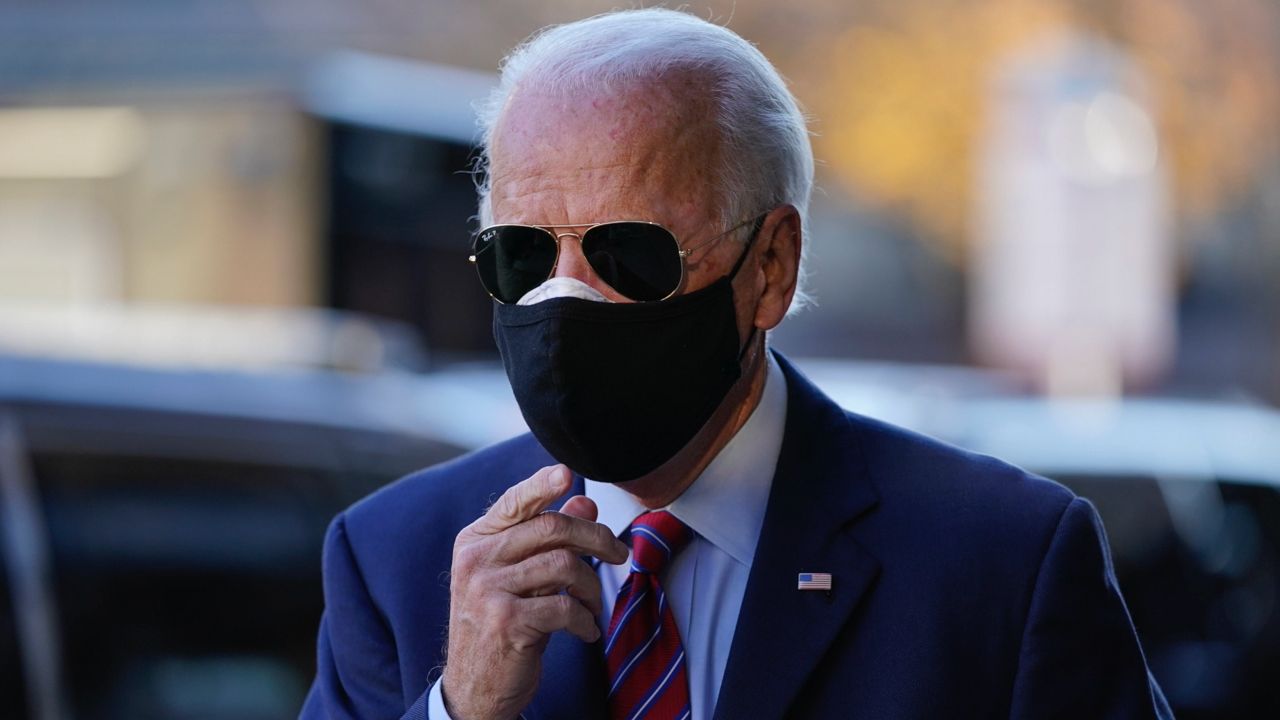
President-elect Joe Biden’s transition can officially begin, after a federal agency ascertained Monday that he was the “apparent” winner of this month’s election.
The announcement came more than two weeks after major news agencies called the race for Biden, and almost three weeks after Election Day itself.
The sign-off from the head of the General Services Administration means Biden has access to federal resources. It also grants him access to intelligence briefings and allows him to coordinate with federal agencies.
Despite lacking formal recognition, Biden has geared up his transition in recent weeks, including unveiling a list of White House nominees earlier in the day Monday.
President Donald Trump, meanwhile, has refused to concede. In a tweet Monday evening, Trump insisted he will keep up his legal fight regarding the election despite the formal recognition of Biden as the apparent winner. His legal team has repeatedly lost in court, failing to provide evidence to back up public accusations of widespread fraud.
Asked about the delayed transition last week, Biden attempted to present an air of calm, saying, “I find this more embarrassing for the country than debilitating for my ability to get started” But in other comments, he warned that the delay could impact the coronavirus fight, saying “many people may die” if they could not coordinate their plans with the outgoing administration.
The Last Delayed Transition
This is not the first time an incoming administration has had to wait for the transition process to formally begin, albeit the circumstances were quite different, with the results hanging on a few hundred votes in one state.
In 2000, the George W. Bush transition got off to a slow start amid the Florida recount and subsequent court fights. The transition was not formally recognized until mid-December.
As a work around, the Bush team raised private funds and rented their own office space while the legal fights were resolved.
“Bush had an awful transition, that was very difficult,” said Ed Moy, who worked on the Bush transition and later served as the director of the U.S. Mint. Moy says by Inauguration Day, they were one of the “worst staffed administrations in modern history.”
Over the past decade, lawmakers in Washington have approved legislation aimed at smoothing out the transfer of executive power.
But this year, a Trump appointee - until Monday - held up the process, cutting the Biden camp off from federal resources and intelligence.
“We’re almost in the same spot. It’s really because one part of legislation didn’t change: the GSA administrator basically has to ascertain a winner,” Moy said in an interview conducted before Monday’s announcement.
Moy warned that the waiting could hinder Biden’s transition efforts, delaying background checks for key appointees and leaving them behind on intelligence briefings. But - he noted - Biden has the benefit of prior experience.
“Instead of hitting the ground at 100 percent, they’ll hit the ground at 80 percent. And they’re going to make up that 20 percent pretty quickly,” Moy said.
Even during an ordinary year, a transition is a daunting task, requiring the incoming president to hire thousands of people and ramp up the administration in a matter of months.
"impact" - Google News
November 24, 2020 at 08:34AM
https://ift.tt/3fpzMmY
Unpacking the Impact of a Delayed Presidential Transition - Spectrum News
"impact" - Google News
https://ift.tt/2RIFll8
https://ift.tt/3fk35XJ
Bagikan Berita Ini















0 Response to "Unpacking the Impact of a Delayed Presidential Transition - Spectrum News"
Post a Comment